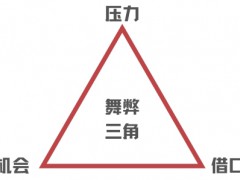據(jù)今日油價5月11日表示,2020年是化石燃料行業(yè)的一個分水嶺。專家警告稱,面對全球新冠肺炎疫情、嚴重的需求沖擊以及向可再生能源的轉變,價值近9000億美元(約占大型油氣公司價值的三分之一)的儲量有可能變得一文不值。
就連大型石油公司似乎也不得不接受自己的命運,荷蘭皇家殼牌公司(Royal Dutch Shell)首席執(zhí)行官本·范伯登(Ben van Beurden)稱,石油需求已經達到峰值。同時,英國石油公司,作為在2015年歷史性的聯(lián)合國氣候變化協(xié)議達成后就加倍進行鉆探活動的公司,最終讓步道:“對碳排放和氣候變化的擔憂意味著,世界石油儲備枯竭的可能性越來越小。”BP繼續(xù)宣布資產減記,這是所有石油巨頭中規(guī)模最大的資產減記之一,此前該公司將資產價值削減高達175億美元,并承認這場疫情將加速市場從化石燃料轉移。
然而,具有諷刺意味的是,命運的轉折可能意味著,與其將巨大的石油和天然氣儲量深埋地下,世界很可能在我們有生之年耗盡這些大宗商品。
總部位于挪威的能源咨詢公司Rystad energy警告稱,除了還有許多未被發(fā)現(xiàn)的石油資源,大型石油公司的已探明儲量可能在不到15年內耗盡,除非大型石油公司能迅速發(fā)現(xiàn)更多的商業(yè)發(fā)現(xiàn)。這些產量為埃克森美孚、英國石油公司、殼牌、雪佛龍、道達爾和埃尼集團的已探明油氣儲量。
2020年,大型石油公司的已探明儲量減少了130億桶油當量,相當于其地下庫存水平的15%。Rystad現(xiàn)在說,剩余的儲量將在不到15年內耗盡
最主要的原因是勘探投資迅速縮水。
全球石油和天然氣公司在2020年削減了驚人的34%的資本支出,以應對需求的萎縮和投資者對該行業(yè)持續(xù)低回報的擔憂。且這一趨勢并沒有放緩的跡象,根據(jù)Rystad的數(shù)據(jù),第一季度的探明儲量為12億桶,為7年來的最低水平。
在加拿大油砂和美國頁巖氣儲量大幅減少后,埃克森美孚的已探明儲量在2020年減少了70億桶,比2019年減少了30%。
與此同時,殼牌去年已探明儲量下降20%,至90億桶;由于減值支出,雪佛龍損失了20億桶,而BP損失了10億桶油當量。過去10年,只有道達爾和埃尼避免了探明儲量的減少。
氣候行動也帶來了消極的影響。
美國政策變化,以及狂熱的氣候行動主義,很可能會讓大型石油公司很難回到激情的鉆井時代。美國重新加入了巴黎氣候協(xié)議,破壞了一條有爭議的石油管道,暫停了公共土地上的化石燃料勘探租約,提議對清潔能源進行前所未有的投資,并開始逆轉此前的許多監(jiān)管措施。
4月,美國在線上虛擬氣候峰會上公布了一項雄心勃勃的10年期氣候計劃,計劃到2030年將美國的溫室氣體排放量削減50-52%。這相當于美國在2015年《巴黎協(xié)定》承諾的26% -28%的減排目標翻了近一番。
美國提議征收碳稅,不過此項政策并未確定。與此同時,全球最大的資產管理公司貝萊德(BlackRock)一直在加大對油氣資產剝離的投資力度。早在2019年,貝萊德就宣布打算在10年內將ESG(環(huán)境、社會和治理)投資增加10倍以上,從900億美元增加到1萬億美元。
如今,該公司正在推出氣候行動的目標,并希望他所投資的公司披露實現(xiàn)凈零經濟的計劃。該公司將凈零經濟定義為到2050年實現(xiàn)溫室氣體凈零排放。貝萊德計劃為其公開發(fā)行的股票基金和債券基金制定一個“溫度校準指標”,以明確溫度校準目標,包括與凈零計劃同步調的產品,從而將油氣公司置于約束之下。
此外,塞拉俱樂部(Sierra Club)在內的氣候活動人士一直在給貝萊德和先鋒集團(Vanguard)打電話和發(fā)郵件,敦促他們投票反對埃克森美孚首席執(zhí)行官達倫?伍茲(Darren Woods),該俱樂部稱,埃克森美孚董事會“需要徹底改革”,以更好地管理氣候風險,并引導公司走向低碳未來。
油氣公司業(yè)務出現(xiàn)異常。
4月份,在IHS Markit召開的CERAWeek能源大會上,大型石油公司表示不希望過多地關注于減少石油和天然氣的生產,而是希望減少碳排放和溫室氣體排放的影響。達倫?伍茲和西方石油公司的Vicky Hollub認為,減少化石燃料的碳排放,而不是實際使用化石燃料,是應對氣候變化的最佳方式。
有趣的是,兩位首席執(zhí)行官都強調,世界仍然需要石油和天然氣,政府需要專注于減緩全球變暖,使用碳捕獲和封存(CCS)等技術,而不是攻擊化石燃料。然而,即便是最大的強硬派埃克森美孚也明顯改變了幾年前的論調。
在公司2021年投資者日期間,達倫?伍茲概述了公司的能源轉型戰(zhàn)略,包括削減油氣產量增長和增加現(xiàn)金流,以支持不斷增長的股息。埃克森美孚透露,計劃從2020年到2025年將產量維持在370萬桶/天的水平,較一年前發(fā)布的2025年500萬桶/天的預期產量減少了26%。
總而言之,當前, 盡管油價出現(xiàn)回升,但大型石油公司仍很難繼續(xù)照常營業(yè)。
王佳晶 摘譯自 今日油價
原文如下:
Big Oil Is In Desperate Need Of New Discoveries
The year 2020 was a watershed moment for the fossil fuel sector. Faced with a global pandemic, severe demand shocks and a shift towards renewable energy, experts warned that nearly $900 billion worth of reserves--or about one-third of the value of big oil and gas companies--were at risk of becoming worthless.
Even Big Oil mostly appeared resigned to its fate, with Royal Dutch Shell (NYSE:RDS.A) CEO Ben van Beurden declaring that we had already hit peak oil demand while BP Plc. (NYSE:BP)—a company that doubled down on its aggressive drilling right after the historic 2015 UN Climate Change Agreement--finally gave in saying "..concerns about carbon emissions and climate change mean that it is increasingly unlikely that the world's reserves of oil will ever be exhausted." BP went on to announce one of the largest asset writedowns of any oil major after slashing up to $17.5 billion off the value of its assets and conceded that it "expects the pandemic to hasten the shift away from fossil fuels."
Yet, an ironic twist of fate might mean that rather than huge oil and gas reserves remaining buried deep in the ground, the world could very well run out those commodities in our lifetimes.
Norway-based energy consultancy Rystad Energy has warned that Big Oil could see its proven reserves run out in less than 15 years, thanks to produced volumes not being fully replaced with new discoveries.
According to Rystad, proven oil and gas reserves by the so-called Big Oil companies, namely ExxonMobil (NYSE:XOM), BP Plc., Shell, Chevron (NYSE:CVX), Total ( NYSE:TOT), and Eni S.p.A are falling, as produced volumes are not being fully replaced with new discoveries.
Massive impairment charges saw Big Oil's proven reserves drop by 13 billion boe, good for ~15% of its stock levels in the ground, last year. Rystad now says that the remaining reserves are set to run out in less than 15 years, unless Big Oil makes more commercial discoveries quickly.
The main culprit: Rapidly shrinking exploration investments.
Global oil and gas companies cut their capex by a staggering 34% in 2020 in response to shrinking demand and investors growing wary of persistently poor returns by the sector.
The trend shows no signs of moderating: First quarter discoveries totaled 1.2 billion boe, the lowest in 7 years with successful wildcats only yielding modest-sized finds as per Rystad.
ExxonMobil, whose proven reserves shrank by 7 billion boe in 2020, or 30%, from 2019 levels, was worst hit after major reductions in Canadian oil sands and US shale gas properties.
Shell, meanwhile, saw its proven reserves fall by 20% to 9 billion boe last year; Chevron lost 2 billion boe of proven reserves due to impairment charges while BP lost 1 boe. only Total and Eni have avoided reductions in proven reserves over the past decade.
Climate activism
Yet, policy changes by Biden's administration, as well as fever-pitch climate activism, are likely to make it really hard for Big Oil to go back to its trigger-happy drilling days.
In his first three months in office, Joe Biden has rejoined the Paris climate agreement, scuppered a controversial oil pipeline, suspended fossil fuel leases on public land, proposed unprecedented investment in clean energy, and started to reverse many of his predecessor's regulatory rollbacks.
In a virtual climate summit with 41 world leaders last month, President Joe Biden unveiled an ambitious 10-year Climate Plan that has proposed cutting U.S. greenhouse gas emissions by 50-52% by 2030. That represents a near-doubling of the U.S. commitment of a 26-28% cut under the Obama administration following the Paris Agreement of 2015.
Biden had even proposed a carbon tax, though it was conspicuously absent in his latest climate policy.
Meanwhile, the world's biggest asset manager BlackRock, has been doubling down on oil and gas divestitures.
Back in 2019, BlackRock declared its intention to increase its ESG (Environmental, Social and Governance) investments more than tenfold from $90 billion to a trillion dollars in the space of a decade.
But now the firm is pushing out the goalposts on climate action and wants companies that he invests in to disclose how they plan to achieve a net-zero economy, which he has defined as eliminating net greenhouse gas emissions by 2050. BlackRock plans to put oil and gas companies under the clamps by creating a "temperature alignment metric" for both its public equity and bond funds with explicit temperature alignment goals, including products aligned to a net-zero pathway.
Climate activists, including the Sierra Club, have been bombarding BlackRock and Vanguard with calls and emails urging them to vote against Exxon Mobil's CEO Darren Woods, saying Exxon's board "needs an overhaul" to better manage climate risks and guide the company to a low carbon future.
Business unusual
During last month's CERAWeek by IHS Markit energy conference, it became abundantly clear that Big Oil wants to focus not so much on curtailing oil and gas production but rather on mitigating the impact of its carbon and greenhouse gas emissions.
According to Exxon Mobil CEO Darren Woods and Occidental Petroleum's (NYSE:OXY) Vicky Hollub, reducing carbon emissions from fossil fuels and not the actual use of fossil fuels, offers the best way to combat climate change.
Interestingly, both CEOs have stressed that the world still needs oil and gas, and governments need to focus on mitigating global warming using technologies such as carbon capture and storage (CCS) instead of attacking fossil fuels.
Nevertheless, even the biggest hardliner of them all, Exxon Mobil, has markedly changed its tune from just a few years back.
During the company's 2021 Investor Day, CEO Darren Woods outlined the company's energy transition strategy, including plans to trim production growth and boost cash flows in a bid to support a growing dividend. Exxon revealed that it plans to hold production flat from 2020 levels through 2025 at 3.7M boe/day, good for a 26% cut from the 5M boe/day estimate for 2025 it released just a year ago.
In other words, it's going to be really hard for Big Oil to continue with business as usual despite an oil price recovery.
免責聲明:本網轉載自其它媒體的文章,目的在于弘揚石化精神,傳遞更多石化信息,并不代表本網贊同其觀點和對其真實性負責,在此我們謹向原作者和原媒體致以敬意。如果您認為本站文章侵犯了您的版權,請與我們聯(lián)系,我們將第一時間刪除。







